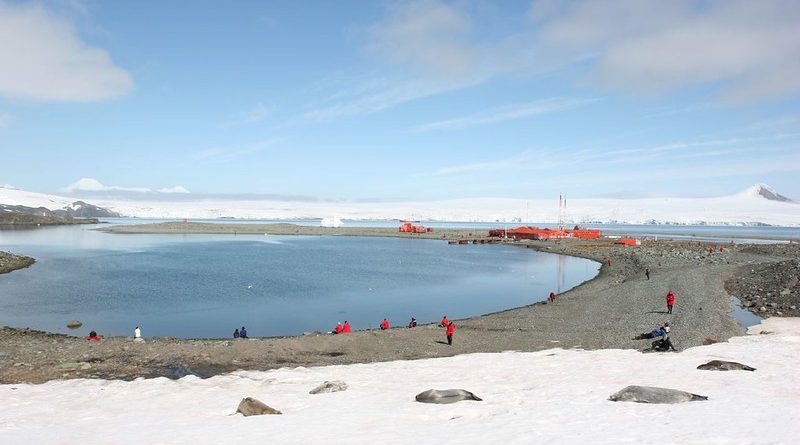Is Climate Change the Next Financial Crisis?
Brittney Segura
Staff Writer
There is a wide consensus on the need to address climate change, yet little is acknowledged about what are its financial risks. In the past couple of years, banks have recovered from the 2008 financial crisis, but it appears climate change may be the latest challenge to maintain international financial stability. While banks have made investments on non-renewable energy such as fossil fuel, caution has risen into the liability of their investments as well as how best to make changes without destroying the short-run effects.
The Center for American Progress stated that human beings have caused a 1-degree Celsius increase than pre-industrial levels. The temperature changes have caused frequent occurrences like wildfires, droughts, and floods. Yet, the long-term effects on the international financial market are the most concerning. The American Progress center estimated that a 4-degree Celsius increase can cause economic losses of up to 23 trillion dollars per year, turning climate change into a risk factor in the financial sector. There are two main risks that are originating from climate change.
First, there are physical risks of climate change, such as homes being flooded that create a loss for insurance companies as they face severe losses on assets and properties. This can lead to an increase in selling illiquid assets to cover the cost of damage and paying creditors. Furthermore, the Economist Intelligence Unit has calculated the loss between 4.2 trillion dollars and 13.8 trillion dollars globally for private investors. The high losses cause a higher risk exposure to banks as there will be higher migration out of areas effected which can decrease the value of houses and increase poverty rates.
Second, while there is a giant push in the international community to address climate change and to shift to alternatives, there are potential risks in the transition to a greener and sustainable economy. The Bank of England reported that businesses will be burdened with the additional cost of policies meant to deter harmful disasters. For example, two-thirds of the fossil fuel reserves globally would not be allowed to be burned if following the Paris Accord. In the financial sector, there will be changes in the value of certain investments like coal, oil, and gas. Similarly, industries that indirectly use harmful natural resources could also take a hit such as automobiles, planes, and machinery.
The Bank of International Settlement published a detailed report explaining the biggest risk for the future in bank investments which are connected to the harmful effects of rising carbon dioxide levels. The report reveals that carbon dioxide levels have grown exponentially from 315 ppm in 1959 to 400 ppm in 2016. A rise in carbon dioxide levels causes a rise in the sea level, disrupts the ecosystems, and threatens wildlife. The report further details how these effects can cause a decrease in consumption and productivity as well as price and financial instability.
These two risks are conflictual for both sides of the spectrum. If climate change is not addressed, then it may cause irreparable damage to the insurance industry. If addressed, it could potentially harm current industries such as oil and coal. Both consequences can be very determined to the financial sector as these industries rely on investments from banks and private companies.
International Banks such as the United Kingdom and the European Union have begun taking these risks seriously and addressing changes. According to the Financial Times, President of the European Central Bank Christina Legarde and Governor of the Bank of England Mark Carney had a financial agenda meeting for the UN climate summit, known as COP26 in Glasgow on February 27. This meeting was meant to gather support from Scottish representatives as well as urge banks to join the Task Force on Climate-Related Financial Disclosure (TCFD). The TCFD was created for banks to be more transparent about their financial information and to conduct a stress test of climate risk.
Additionally, The Guardian informed that some companies have started taking their own initiatives to address the issue. Black Rock, a large asset manager, announced that it would relocate its capital to reduce exposure to fossil fuel. Companies alike are making efforts to adjust to the global necessity to address climate change, but it is too soon to start tipping off hats to them. However, the private sector may need more than their own volition.
Last February, at the World Economic Forum in Davos, one of the main themes being addressed was climate change. While world leaders voiced their opinions on the demand to expedite the process, their room for concern remains. The World Economic Forum reported that the Global Chief Investment Officer of Guggenheim Scott Minerd explained that it is not enough to divert investment to non-fossil fuel industries but there also needs to be a greater incentive—a carbon tax. It is undeniable that we will require a public and private sector initiative to push the economy forward in a stable trajectory and disrupt the cycle of polluting our planet.




